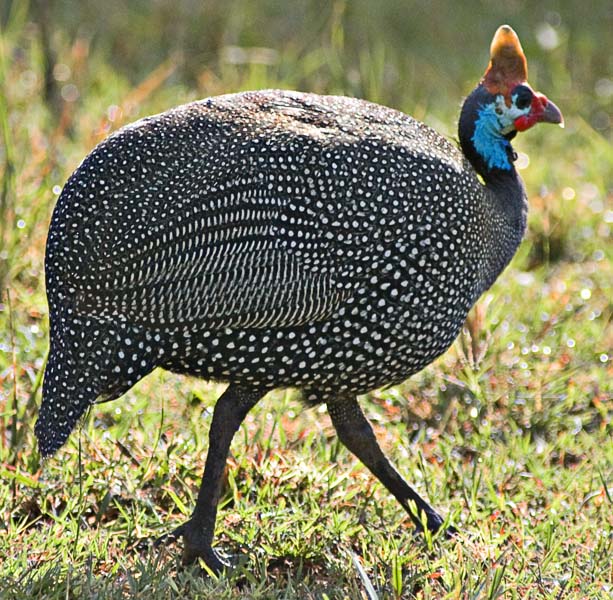Panangokhala. (Once upon a time)
Tili tonse.
Panali amayi ena akenso. (There was a certain woman)
Tili tonse.
Anali ndi atsikana awo awiri, ana awo. (She had two daughters.)
Tili tonse.
Wina wamkulu, wina wamng’ono. (One was older than the other).
Tili tonse.
Ndiye basi, amai aja akamapita kumunda, amaasiya ana aja kuti , ‘Ah, inuyo musamale pakhomo.’(So, whenever the mother went to the maize field, she would leave the chidlen and say, ‘Look after the home.’
Tili tonse.
Mwina kuasiyira ndiwo kuti aphike, kuti madzulo azangophika nsima. ( Sometimes she would leave them relish, then in the evening they would cook nsima.)
Nde tsiku limenelo anawasiyira nyemba. (So on that day she left beans.)
Tili tonse.
Nde ana aja nkumasewera, mpaka nyemba zija kupselela.( So the children were playing, and the beans got burnt).
Tili tonse.
Basi amai aja kubwera, kuchoka kumunda ali ndi njala, anadzapeza ndiwo zapsyelela. (So when the woman came back from the garden, hungry, the beans had been burnt.)
Tili tonse.
Nde anapsa mtima, nkutenga mwana wamkulu uja, nkuponya mu mtondo, nkumsinja. (So she lost her temper, took the oldest child, threw her into the mortar, and pounded her.)
Tili tonse.
Basi nkumtaya kudzala. (And then she threw her into the rubbish pit).
Tili tonse.
Mvula ya mwela nkumtenga nkukamtaya m’nyanja. (The east wind took her and cast her into the sea.)
Tili tonse.
Basi, m’nyanja muja, ng’ona pansi nkumutenga. Basi nkutolatola ti ma piece tija nkumusokasoka. Basi nkukhalanso mtsikana. (In the lake, she was taken by a crocodile, who picked up the pieces, sewed them, until she was a girl again.)
Tili tonse.
Nkumukwatira, nkumakhala naye pansi pa madzi. (Then he married her, and lived with her under the lake.)
Basino. Ndiye atsikana a mmudzi muja ankapita kunyanja. (Now the village girls used to go to the lake).
Tili tonse.
Nkumakatunga madzi. Amakatunga munyanja. (They would draw water from the lake).
Tili tonse.
Nde basi. (So…)
Ndiye amapanga zija zonena kuti, ‘ Aliyense asenze yekha madzi.’ (They used to say that each girl should lift her full clay pot onto her head by herself).
Tili tonse.
Nde basino. Ujayu, amakanika kusenza ; nthawi imeneyo amatungila madzi m’mitsuko. (Now the younger sister did not know how to lift her clay pot by herself. In those days they used clay pots for drawing water.)
Tili tonse.
Nde basi, akakhala pameme paja amangolira kuti nkadakhala kuti mkulu wanga alipo, pano atandisenza. Ndikadakhala kuti mkulu wanga alipo, pano atandisenza. Nkumangolira. (So this girl would start weeping, alone, ‘If only my sister was here. She would have helped me to lift my pot.’ So she wept.)
Tili tonse.
Nde mkulu wake uja nkumamva, pansi pa madzi. (So, from beneath the lake, her sister would hear)
Basi nkumamva chisoni. (And she used to feel sorry for her sister).
Nde amatuluka, nkumusenza, basi nkubwelelanso. (So she would get out, help the young girl with the clay pot, and go back in).
Nde amapanga chonchija. (And that’s how they would do it.)
Ndebasi. Ndekenano iye uja anayamba kuwauza mai ake. Ati, ‘Amayi. Mkulu wangatu alipo ali kumadzi, moti amandisenza ineyo mtsuko.’ (So the younger sister started telling her mother. ‘ Mother, my sister is in the lake, and she always helps me with my clay pot).
Basino. Nde amai aja, kenako anapanga regret kuti ndinapheranji mwana wanga. (Now the mother had started regretting her own actions).
Tili tonse.
Nde…anafuna kuti mwana uja amutengenso. (So…she wanted to get her daughter back.)
Tili tonse.
Ndebasi ndikukumana nkupangana ndi anthu akumudzi. (So she met up with people in the village and they started planning.)
Tili tonse.
Ali, ‘tikamugwire akatuluka.’ (They said, ‘ Let’s seize her when she comes out.’ )
Nde basi anapanganso chimodzimodzi. Iye uja nkuyamba kulira wamng’ ono uja. (So they made a plan. The next time she was at the lake, the younger sister started crying).
Basi wamkulu uja kubwera kutuluka, nkumusenza. (The older sister came out, and helped her with the pot).
Atangotuluka paja anthu nkuthamanga nkumugwira. (Once she was out, the people rushed and captured her)
Basi nkupita naye kumudzi. (and took her home).
Nde ng’ ona iwone….ziii. Mkazi wake sakutani ? Sakubwera. (Meanwhile the crocodile waited. There was no sign of his wife.)
Nde ng’ ona nayonso inapsa mtima. Nkungomeza madzi ooooonse a m’nyanja. Nkunyamuka. Basino, nkuyamba kuyenda. (Then the crocodile lost its temper. And swallowed allllllll the water in the lake. And started off, heading for the village).
Nde ine ndikamaimba muziti ‘gunte.’ When I sing, say ‘Gunte’
Nte nte.
Gunte.
Ndani anaba mkazi,
Mkazi wamwini n’gona. Ochito soka.
Nte nte.
Gunte.
Nte nte.
Gunte.
(Who stole the crocodile’s wife, the hand-sewn wife?)
Nde ikamayenda ng’ona ija, imakhala ikulavula madzi aja. Nkumapanga ma flood. Nde kumangoimba kumangopita kumudzi kuja. Ndekumudzi kuja pamene imafika ndekuti kwapangiratu ma flood. Basi, anthu onse aja nkufa ndi madzi koma mkazi uja chifukwa choti anadzolowera kukhala m’madzi, ng’ona anangomutenga nkubwerera nkukakhala m’madzi. Nthano inathela pompaja.
(So the crocodile went, spitting lots of water on its way, causing floods. And it kept singing on its way to the village. So by the time it arrived in the village there were floods. Everyone died, but the crocodile’s wife survived because she had already been used to water. They went back to live in the water. And that’s how the story ended.)
The moral of the story : osamachita nkhanza ndi ana. (Don’t be cruel to children).
As recounted by Dr. Hendrina Kachapila-Mazizwa


![Ngoza na Kasiwa [Translated into English from Tumbuka]](https://makewana.org/wp-content/uploads/2015/06/Ngoza-na-Kasiwa.png)

